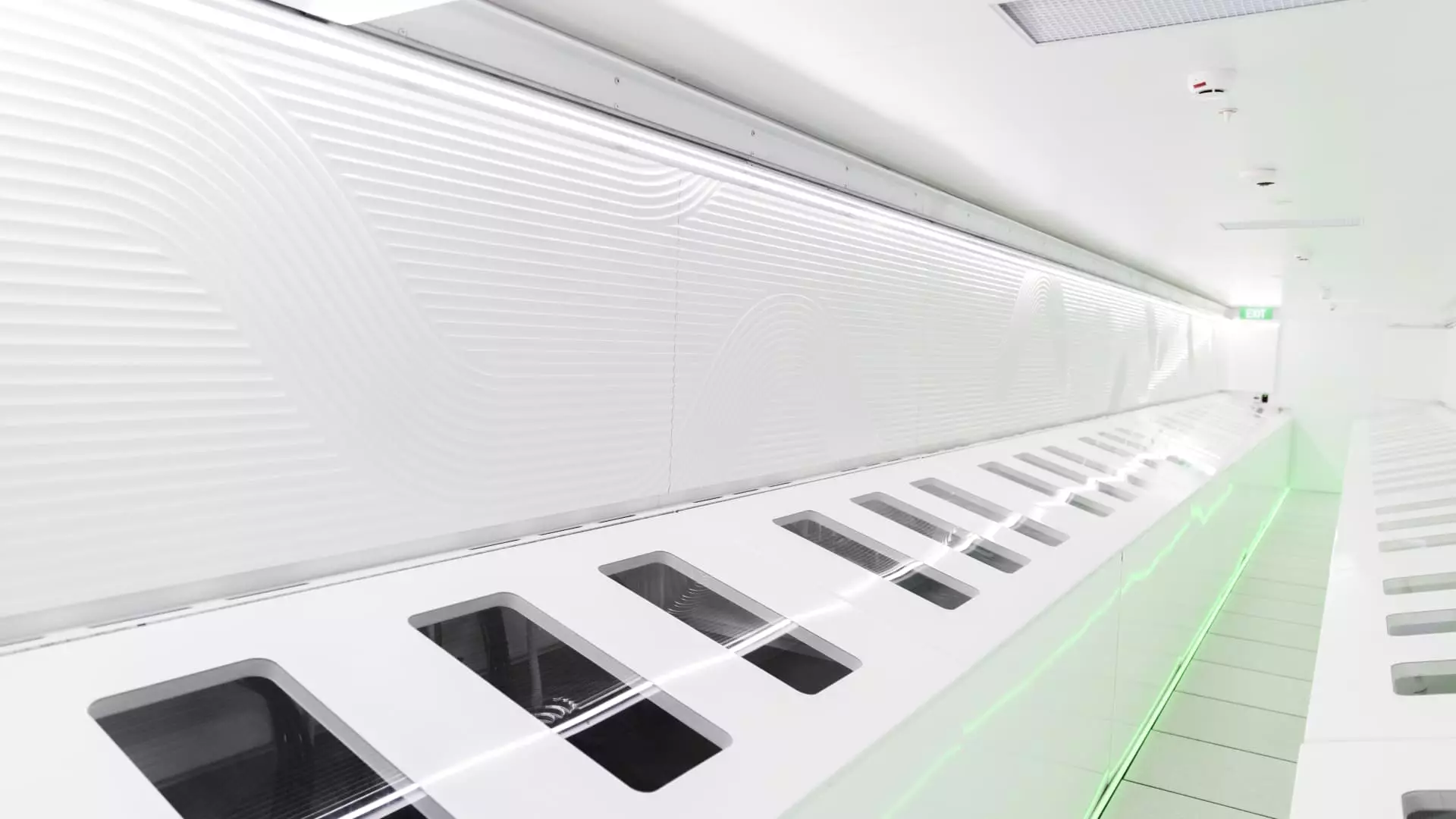In recent times, the landscape of technology has been markedly transformed by the surge in artificial intelligence (AI). This wave of advancement necessitates not only more robust processing capabilities but also an increase in the energy required for continuous operation and cooling of data centers. As companies strive to harness the power of AI, the demand for efficient, scalable infrastructure has never been greater. Among the front-runners in addressing these needs is Sustainable Metal Cloud (SMC), which is making significant strides in merging sustainability with advanced computing technologies.
Sustainable Metal Cloud’s innovative approach revolves around the development of “HyperCubes”—modular units that house servers equipped with powerful Nvidia processors. What sets HyperCubes apart is their groundbreaking immersion cooling system, utilizing polyalphaolefin, a synthetic oil that efficiently extracts heat. This cooling solution not only achieves superior thermal management compared to traditional air cooling systems but also touts a staggering reduction in energy consumption by as much as 50%. This makes SMC a prominent player in the push for environmentally friendly data processing solutions.
Tim Rosenfield, co-founder and co-CEO of SMC, emphasizes the unique advantages of their technology. With immersion cooling, they can deliver high-density hosting required for advanced AI platforms like Nvidia’s Grace Blackwell. Moreover, SMC claims that their solution is significantly more cost-effective, being 28% cheaper to install compared to other liquid cooling methods, setting a new standard in deployment and scalability.
One of the most compelling features of SMC’s HyperCubes is their adaptability; the design enables deployment in underutilized spaces within existing data centers. This versatility is crucial, as many facilities are not currently equipped to manage liquid cooling systems, be it immersion or direct chip cooling. As Tim Rosenfield candidly notes, the industry is at a crossroads, with a multitude of strategies vying for traction. The containerized nature of their technology enables SMC to swiftly meet rising customer demands, ultimately resulting in the establishment of additional availability zones.
With plans for expansion into markets such as Thailand and India, SMC is well-positioned to capitalize on the growing demand for advanced AI computing infrastructure. Partnerships with key players like Nvidia and Deloitte further illustrate the company’s strategic ambitions. Collaborating with Deloitte allows SMC to extend its GPU computing resources to consulting clients for AI application development, amplifying its influence in the tech ecosystem.
In the shadow of soaring data center energy consumption, governments globally are recognizing the urgency for sustainable solutions. Singapore, home to SMC, is leading the charge with investments exceeding 500 million Singapore dollars to foster green data centers that complement the nation’s AI aspirations. Attaining funding from major stakeholders such as Temasek-backed ST Telemedia Global Data Centres attests to SMC’s credibility as a pioneer in the sector.
Currently seeking $400 million in equity and an additional $550 million in debt, SMC’s aim is not only to bolster its operations within Singapore but to extend its reach internationally. This funding will be pivotal in scaling its operations and meeting the burgeoning needs of AI infrastructure within a climate-conscious framework.
As the demand for AI computing continues to surge, many technology companies are increasingly leaning towards liquid cooling solutions. This methodology offers a unique advantage; it allows for packing more servers in a limited space, countering the historical necessity of expansive aisles for air circulation. The consensus among industry leaders, including Giordano Albertazzi of Vertiv, suggests that we may witness significant acceleration in the adoption of liquid cooling technologies in the near future.
During recent tech events, Nvidia’s CEO Jensen Huang has extolled the benefits of direct liquid cooling for its energy-saving potential and reduced operational costs. Despite the promising outlook, challenges persist, particularly regarding the readiness of existing data centers to integrate such systems. Tim Rosenfield remains candid about these obstacles, highlighting that many facilities are not adequately prepared for any form of liquid cooling.
As the intersection of AI and data processing evolves, companies like Sustainable Metal Cloud are at the forefront of ensuring that the infrastructure supporting this transformation is both advanced and sustainable. With innovative solutions like HyperCubes, strategic partnerships, and a commitment to sustainability, SMC embodies the future of data centers—one that harmonizes efficiency with ecological responsibility. The journey ahead may be fraught with challenges, but the upside potential for businesses, governments, and the environment can contribute to a transformative era in technology.


Leave a Reply